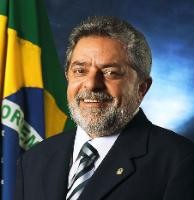A deft diplomatic intervention to shore up Bolivia's beleaguered government demonstrated Brazil's newfound willingness to exert strong political leadership in South America, filling the vacuum created by America's disengagement with the region's leftist presidents. Bolivia's domestic turmoil led South American leaders to convene a heads-of-state summit for members of the Union of South American Nations (UNASUR), a body created only four months before. The Sept. 15 summit, held in Chile, was in many ways UNASUR's trial by fire, and by all accounts it was a Brazilian show, with President Luiz Inacio "Lula" da Silva leading the negotiations. "With the United States lacking a presence in UNASUR (one of the very reasons behind this organization's existence), Brazil -- South America's economic power -- is beginning to assume a more dominant role with this crisis," reported the influential Madrid daily El País, which has a wide circulation in Latin America. According to Brazilian newspaper O Estado de São Paulo, Lula injected strong language in support of Bolivian President Evo Morales' government into UNASUR's final declaration, while also pushing Morales to negotiate with his opponents. He also succeeded in blocking inflammatory anti-American rhetoric that Venezuelan President Hugo Chávez wanted included, according to Estado.
Lula Steps In: Brazil Fills Vacuum Left by American Disengagement

